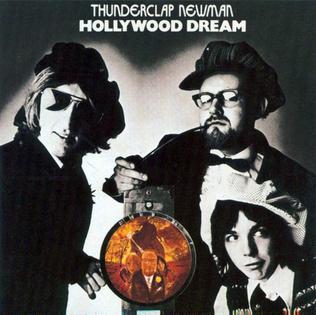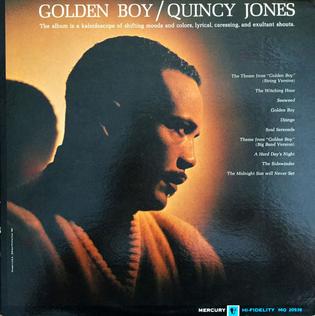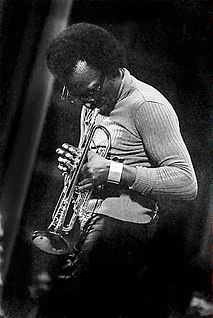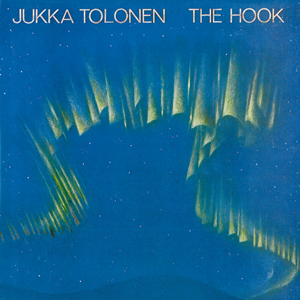Jussi Pekka Pohjola was a Finnish multi-instrumentalist, composer and producer. Best known as a bass player, Pohjola was also a classically trained pianist and violinist.

Wigwam is a Finnish progressive rock band formed in 1968.
Tasavallan Presidentti is a Finnish progressive rock band. It was founded in 1969 by guitarist Jukka Tolonen and drummer Vesa Aaltonen. Other founder members were Måns Groundstroem (bass) and Frank Robson (vocals), previously of Blues Section. Juhani Aaltonen (saxophone/flute) had earlier played in Soulset; he was replaced in 1970 by Pekka Pöyry. Eero Raittinen replaced Robson as a vocalist in 1972, the same year as the album Lambertland was released in UK. The album was a tight fusion of jazz and folk rock with highly inventive and imaginative lyrics which charted at the number 7 position in Finland. Milky Way Moses reached number 12 in Finland in 1974. The band toured in continental Europe and the United Kingdom in 1973 and 1974, but Pöyry, stricken with bouts of manic depression, was occasionally replaced with keyboardist Esa Kotilainen on live dates. Tasavallan Presidentti disbanded in 1974, then reunited from 2005-06 with original saxophonist Juhani Aaltonen, as Pöyry had committed suicide in 1980.

Peaceful World is the eighth studio album by rock band The Rascals, released in May 1971. It peaked at number 122 on the Billboard 200 chart. The single "Love Me" reached number 95 on the Billboard Hot 100.

The Turning Point is a live album by John Mayall, featuring British blues music recorded at a concert at Bill Graham's Fillmore East on 12 July 1969.

Hollywood Dream is the only studio album by British rock band Thunderclap Newman.

Tombstone Valentine is a studio album released by Wigwam in 1970. While the previous album Hard 'n' Horny was more of a jazz influenced album, Tombstone Valentine in one of their more pop-ish albums. The album sounds more like the records of the "Deep Pop" era than the records of the progressive rock era.

A Present for the Future is the second studio album by guitarist Frank Gambale, released in 1987 through Legato Records and reissued in 2000 through Wombat Records. The third track, "Stephanie", is renamed "Serenity" on the reissue; Harpist Stephanie Bennett was Gambale's ex-wife, and was consistently mentioned in the liner notes of all his albums until Passages (1994).

Loose Tubes is the debut album by English jazz Loose Tubes. It was released in 1985 as an LP on Loose Tubes Limited. The recording has never been reissued on CD.

Directions is a compilation album by American jazz musician Miles Davis, released in 1981 by Columbia Records. It collects previously unreleased outtakes that Davis recorded between 1960 and 1970. Directions was the last of a series of compilation albums - mostly consisting of, at that time, previously unreleased music - that Columbia released to bridge Davis' recording hiatus that ended with The Man with the Horn in July 1981.

Invisible Storm is an album by Finnish avant-garde jazz composer, bandleader and drummer Edward Vesala recorded in 1991 and released on the ECM label in 1992.

Benson & Farrell is a studio album by American guitarist George Benson and jazz saxophonist and flutist Joe Farrell featuring performances recorded in 1976 and released on the CTI label.

Elonkorjuu is a Finnish progressive rock band formed in 1969. It was first active until 1978 and re-established in 2003.

The Gil Evans Orchestra Plays the Music of Jimi Hendrix is an album of Jimi Hendrix's compositions arranged by jazz composer, conductor and pianist Gil Evans recorded in 1974 and performed by Evans with an orchestra featuring David Sanborn, Howard Johnson, Billy Harper, and John Abercrombie. The album was re-released with additional tracks on CD in 1988.

There Comes a Time is an album by the jazz composer, arranger, conductor and pianist Gil Evans, recorded in 1975 and performed by Evans with an orchestra featuring David Sanborn, Howard Johnson, Billy Harper and John Abercrombie. The album was re-released with an altered tracklist on CD in 1988.

Farewell is a live album by jazz composer, arranger, conductor and pianist Gil Evans recorded by King Records (Japan) in New York in 1986 featuring Evans with his Monday Night Orchestra which included Hamiet Bluiett, Bill Evans, and Johnny Coles and originally released in the US on the Evidence label.
Laulu yhteisestä leivästä is a 1984 album by Finnish gospel musician Jaakko Löytty. The album was commissioned by the Finnish Missionary Society for its 125th anniversary, which was celebrated in Helsinki in June 1984. The album is dedicated to the life work of Leonard Auala, first bishop of the ELCIN church in Namibia.

Golden Boy is an album by Quincy Jones which was released by Mercury in 1964. The album includes three versions of the theme from the musical Golden Boy with three original compositions and jazz versions of pop hits.






















